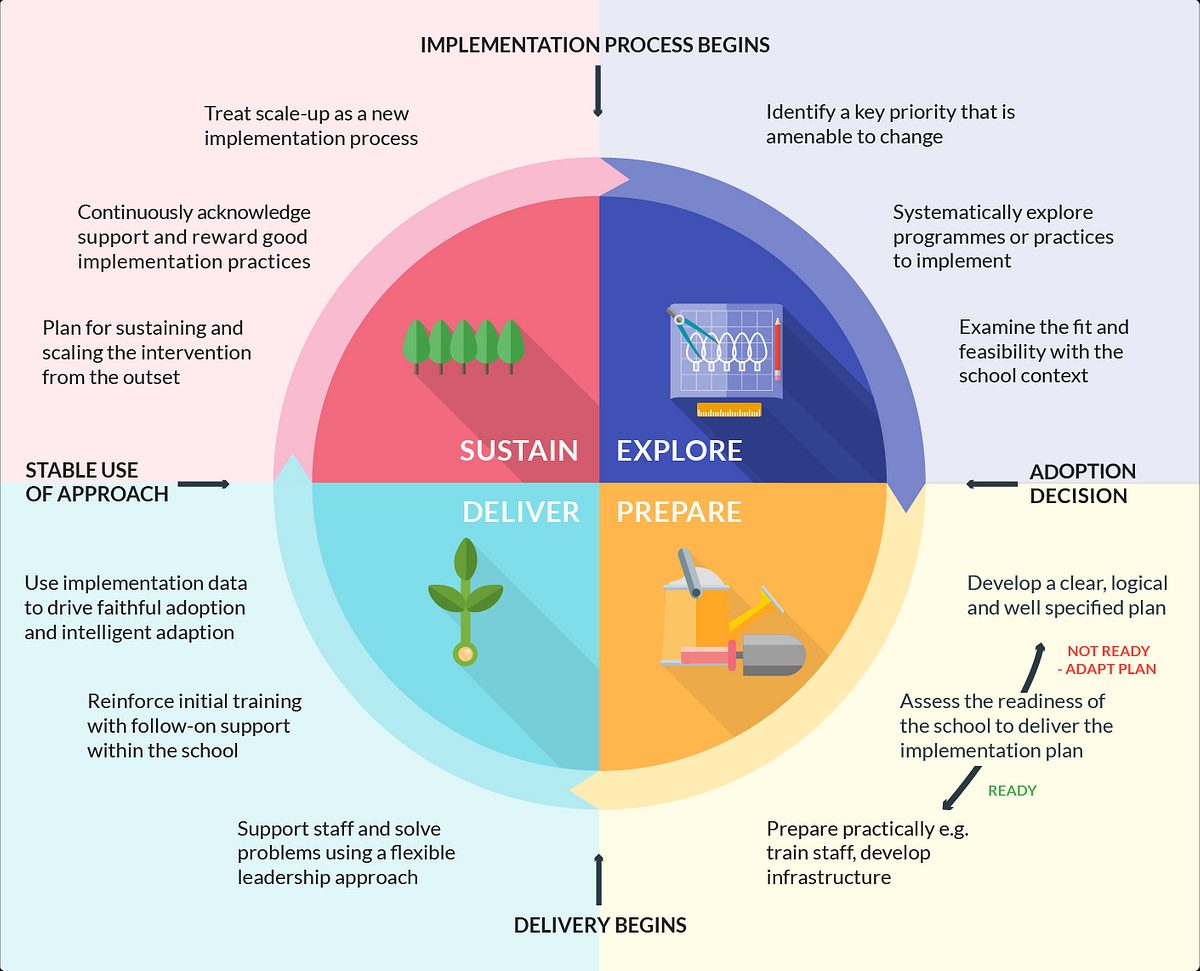Successful implementation happens in stages and unfolds over an extended period of time. It is not a single event that takes place when the decision to adopt a new teaching practice is made, or on the day when training begins. Schools’ implementation processes begin before decisions are made and last for a long time after.
Implementation is therefore often described as a series of stages with activities relating to exploring, preparing for, delivering, and sustaining, change (see Figure 1. below).
An overall feature of the implementation guidance report is its emphasis on activities that occur in the Explore and Prepare phases; in other words, before the actual implementation of a new programme or practice takes place. Creating sufficient time to prepare for implementation in schools is both difficult and rare. Nonetheless, investing time and effort to carefully reflect on, plan, and prepare for, implementation will reap rewards later.
In the video above, Jonathan introduces the overall implementation cycle and the value in doing ‘fewer things better’.
